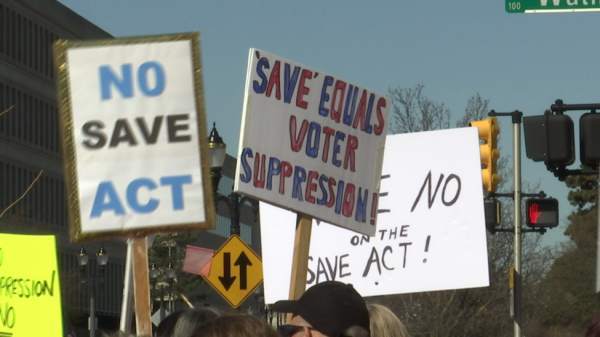Janssen Vaccine Stop & Go
The Johnson & Johnson-owned Janssen Pharmaceuticals became the third company in the United States, joining Pfizer-BioNTech and Moderna, to be given the authorization to use their respective coronavirus vaccines. The Johnson and Johnson vaccine had some unexpected reactions within six people who took the vaccine. They reported cases of cerebral venous sinus thrombosis (CVST) beginning to occur in patterns with thrombocytopenia in these people that have received the vaccination. Their symptoms typically developed six to thirteen days after vaccination. This is a rare brain blood clotting disorder combined with low platelets; all six individuals who had these effects were women between 18 and 48. The adverse effects within these individuals were identified through the Vaccine Adverse Event Reporting System, which is managed in tandem by the Centers for Disease Control and Prevention (CDC) and Food and Drug Administration (FDA). These cases caused the Janssen vaccine to be temporarily paused, though 7 million people had taken the vaccine already. The FDA and CDC concluded that the vaccine’s benefits outweigh the potential risks and eventually lifted the temporary pause after some days of pharmaceutical discussion. This came on the hot heels of similar cases with Oxford’s AstraZeneca in Europe; in the New England Journal of Medicine, it was described as a vaccine-induced immune thrombotic thrombocytopenia. AstraZeneca has not yet been authorized for use in the United States.
The backlash received from these incidents is pretty brute. Anti-vaxxers have taken it and ran with it. In contrast, others who are pro-vaccination are suddenly more questionable, especially ones that have taken the Johnson & Johnson or AstraZeneca vaccines. The incidents were basically just a scare; after all, only a handful of people out of 7 million experienced these effects, but the scare and pausing of the vaccine alone was enough to shake many people. Everyone likes feeling like they have full control of themselves; certainty gives us comfort. The FDA and CDC recommend a pause on a vaccine that they’d already let millions of people take showed their uncertainty. That caused many people to feel uncomfortable. A neighbor of mine is one of the people who had received the Johnson & Johnson vaccine. She states, “I support vaccinations, but we need our health officials to be more upfront about the possible implications of negative side effects. Side effects are completely normal within the healthcare industry, but people need to be told these possibilities to begin with and again at every corner they turn. When side effects are revealed after the fact in situations like this, it causes polarization and stirs the pot. Give people the negative details and possibilities upfront, however deterring they may be.” She constantly expressed that people need to start trying harder to be on the same page and stresses the fact that workers in the healthcare industry need to be as knowledgeable as possible. Giving all of the information, both pros and cons will help ensure this becomes more the case.
People value feeling like they are making their own decisions with as much certainty as possible, but the spread of misinformation immensely slows down this process. Readers and listeners want a place where they can receive truly unbiased information. The websites of the CDC and FDA try to play this role, but a lack of trust causes many citizens of America to disregard anything funded by the government completely. The occasional mishaps paired with the slow reveal of a corrupted system within the United States government fuel the stigma that the government isn’t necessarily a trustworthy source of information.


